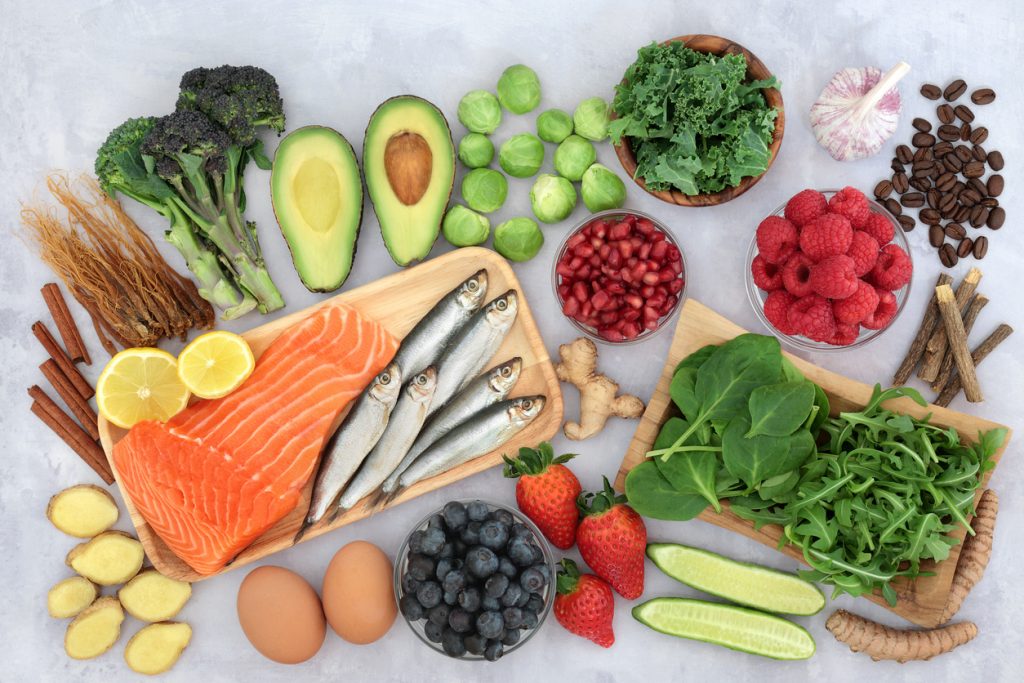Nutrition and TMJ Disorder: A Symphony of Healing
Temporomandibular Joint Disorder (TMJ disorder or TMD) is a condition that affects the jaw joint and the muscles that control jaw movement. Characterized by symptoms such as jaw pain, difficulty chewing, and clicking or popping sounds, TMJ disorder can significantly impact one’s quality of life. While there are various treatment approaches, an often overlooked aspect of managing TMJ disorder is the role of nutrition. In this blog post, we will explore the ways in which dietary choices can play a crucial role in reducing inflammation, promoting joint health, and supporting overall well-being for those with TMJ disorder or TMD.
The Impact of Nutrition on TMJ Disorder:
Dealing with TMD is hard enough. Let’s look at some dietary choices that will help with TMD symptoms.
Inflammation and Anti-Inflammatory Foods

Chronic inflammation is a common factor in many health conditions, including TMJ disorder. Certain foods can either contribute to or alleviate inflammation. To manage TMJ symptoms effectively, individuals should focus on incorporating anti-inflammatory foods into their diets. These include fatty fish rich in omega-3 fatty acids (salmon, mackerel, and sardines), leafy green vegetables, berries, and nuts. These foods not only help reduce inflammation but also support overall joint health.
Vitamins and Minerals for Joint Health
Essential nutrients such as vitamins and minerals play a crucial role in maintaining joint health. Vitamin D, for example, is vital for calcium absorption, which is essential for bone health. Good dietary sources of vitamin D include fatty fish, fortified dairy products, and sunlight exposure. Calcium-rich foods like dairy products, leafy greens, and fortified plant-based milk alternatives also contribute to bone strength. Additionally, magnesium, found in nuts, seeds, and whole grains, supports muscle function and can aid in muscle relaxation.
Hydration and Joint Lubrication

Proper hydration is essential for overall health and can have a positive impact on joint function. Staying well-hydrated helps maintain the synovial fluid that lubricates the joints, including the temporomandibular joint. Individuals with TMJ disorder should prioritize water intake and consider incorporating hydrating foods like watermelon, cucumber, and celery into their diet.
Soft Diet Strategies

Chewing tough or hard foods can exacerbate TMJ symptoms. Adopting a soft diet can help reduce stress on the jaw joint. Incorporating foods like cooked vegetables, mashed potatoes, yogurt, and smoothies can provide necessary nutrients without putting excessive strain on the jaw.
Avoiding Trigger Foods

Certain foods can trigger or worsen TMJ symptoms. Individuals should be mindful of their diet and identify any specific triggers. Common culprits include hard candies, chewing gum, tough meats, and foods that require excessive jaw movement. By avoiding these trigger foods, individuals with TMJ disorder can better manage their symptoms.]
Talk with A Healthcare Professional
In the symphony of healing for TMJ disorder, nutrition plays a crucial role as a harmonious element. By making thoughtful dietary choices, individuals can reduce inflammation, support joint health, and enhance their overall well-being.
It’s important to consult with healthcare professionals like Dr. Postol, including a nutritionist, to develop a personalized nutrition plan tailored to individual needs. Through a holistic approach that combines proper nutrition with other recommended treatments, individuals with TMJ disorder can work towards finding relief and improving their quality of life.
